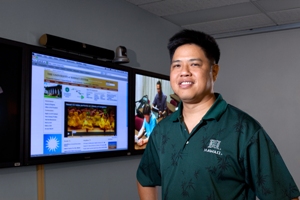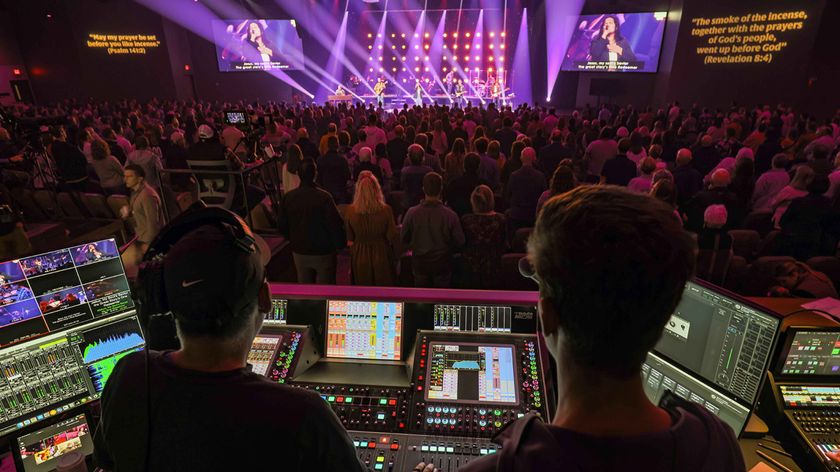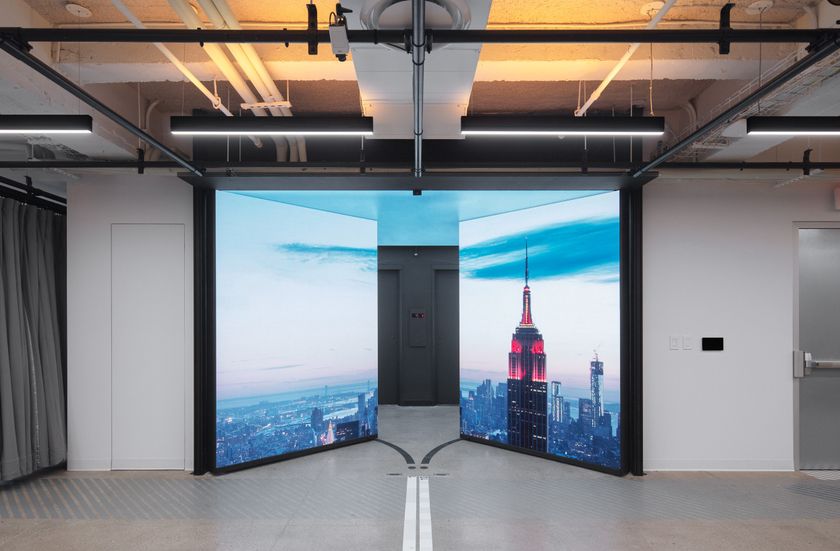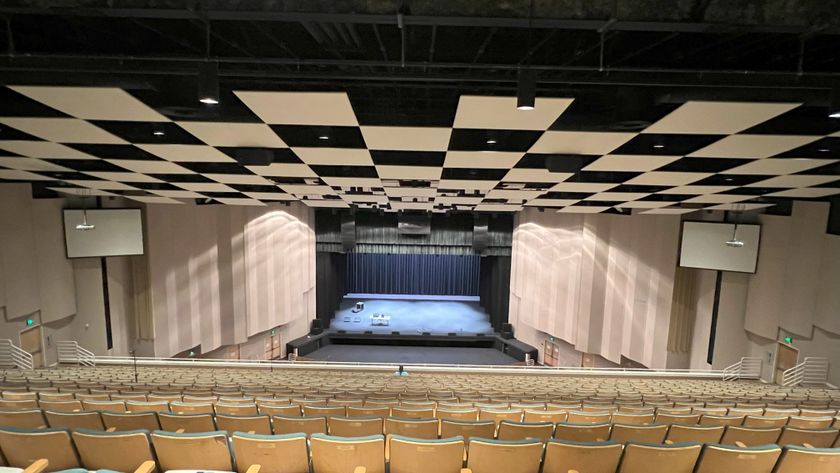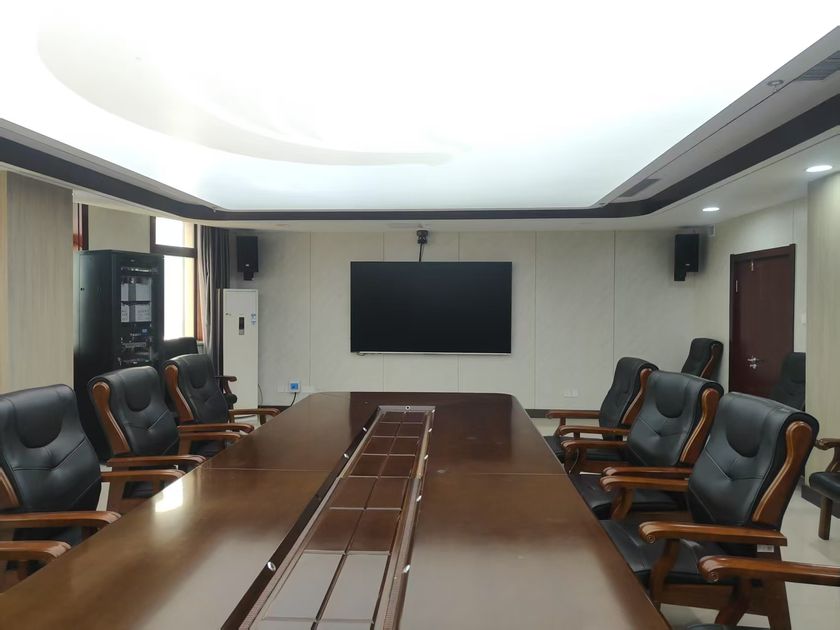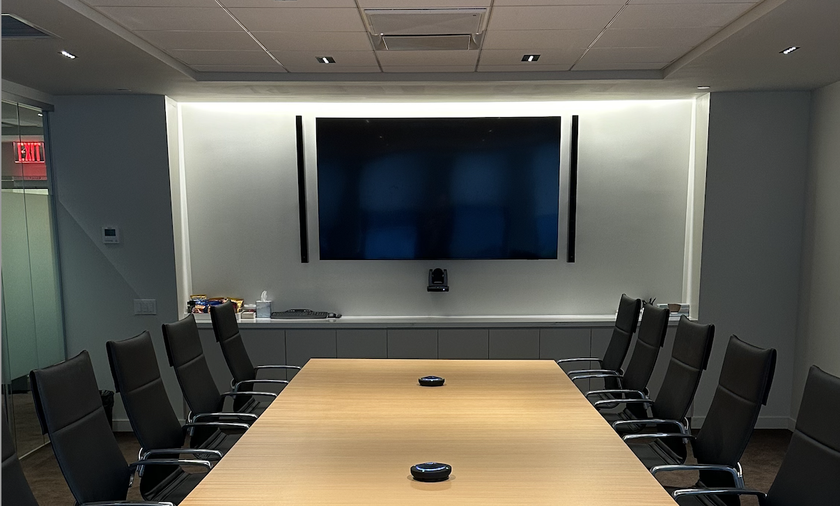The University of Hawaii has implemented a wide-ranging distance learning system that relies on Panasonic’s “50 series” video production system for content generation.
- This telepresence videoconferencing structure allows more than 12 percent of the University’s 60,000+ students to complete graduate and undergraduate studies remotely by participating in an interactive telepresence system at a local campus of choice.
- The University’s department of Information Technology Services (ITS) made a large-scale investment in Panasonic gear in its transition to high-definition distance learning operations, including 17 AW-HE50S HD integrated pan/tilt/zoom cameras with HD/SD-SDI outputs, six AW-HS50N sub-compact live switchers with built-in MultiViewers, and six AW-RP50 remote camera controllers. The purchase also comprised 94 Panasonic professional displays for classrooms, control rooms and production work, including six TH-65PF30U 65-inch, 38 TH-58PF20U 58-inch and 11 TH-50PF30U 50-inch plasma displays, 32 TH-47LF20U 47-inch LCD displays and seven BT-LH1710 17-inch LCD production monitors. The University employs a Polycom RealPresence videoconferencing system.
- According to Royd Liu, video operations manager, Academic Technologies, ITS, “Once we made the decision to upgrade to HD, we knew we wanted a more compact system overall but with broadcast production quality a must as we also use the equipment to produce live cable shows that air on the University’s statewide public access channel.”
- Liu initiated his equipment search by looking at HD switchers. “We were thinking small and cost-effective,” he said. “We saw a demo of the HS50N and liked its compact footprint—it weighs just over four pounds—and offered a MultiViewer. With features like downstream keyer (DSK), an Aux bus, transitions and a very attractive price point, the HS50N seemed ideal. Offering the switcher along with the HE50S camera, which has pan/tilt/zoom and full HD image quality, and the RP50 controller, Panasonic was able to provide one complete solution for us when we had thought we would have to deal with three discrete manufacturers.”
- Four production studios have been established on the Mānoa campus to originate instruction that can be taken at any of the 10 university campus locations across six Hawaiian islands. Liu explained that each classroom studio is equipped with three HE50S cameras and six pro displays. An HS50 switcher, RP50 controller and LH1710 reside in an adjacent control room.
- Three additional studios have been set up at Maui College, which can originate as well as receive instruction.
- “Because of the geographical constraints of our island state, distance learning is a high priority for the University,” Liu said. “With the Panasonic HE50 series, we have moved into the forefront of HD telepresence delivery in education. We have freed up space in our classrooms and effectively reduced our carbon footprint statewide. With the HS50N’s MultiViewer, which allows us to view up to 10 images on a single display, we now need only one monitor per control room, which realizes impressive savings in terms of equipment requirements and power consumption.”
- “The IP-control delivers powerful performance across multiple sites. Specifically, we have the ability to control the HE50S cameras at any given location remotely, raising the possibility of labor efficiencies and contributing to overall system economies.”
- Liu added, “We chose professional Panasonic displays vs. televisions because in our 30-foot by 40-foot classrooms we needed pristine-quality viewing for all the students, which the displays’ wide off-axis viewing angles provide. Moreover, we’re running the displays up to 10 hours a day, six days a week, and required rugged, dependable performance. It was clear that Panasonic met our rigorous requirements at the most affordable price.”
